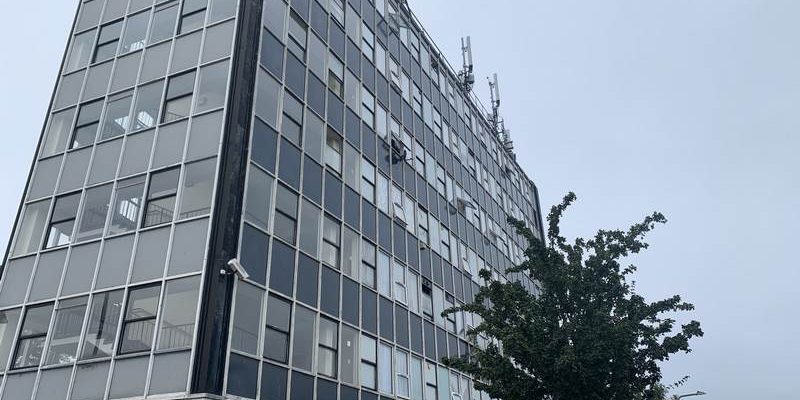Remote Work and Office Asbestos Risks: Why Surveys Remain Crucial
The global pandemic brought significant changes to workplace dynamics, pushing many companies to adopt remote working models. With this shift, some offices are seeing fewer employees daily, while others remain partially or fully operational. Despite the reduced occupancy, asbestos risks persist in office environments, making asbestos surveys crucial for maintaining a safe environment for those still visiting the workplace. Let’s explore why these surveys are more important than ever.
Understanding Asbestos Risks in Offices
Asbestos, a hazardous material widely used in building construction before its ban in the late 1990s, still exists in many older office structures. Ceiling tiles, insulation, and floor tiles are just a few materials where asbestos-containing materials (ACMs) may be present. While intact ACMs generally pose minimal risk, their fibers can become airborne if disturbed, creating serious health hazards for employees and visitors alike. Common office renovations, including cabling and HVAC installations, can also unintentionally disturb asbestos.
Why Asbestos Surveys Are Still Essential
- Ensuring Compliance with UK Regulations: Under the Control of Asbestos Regulations 2012, employers and building owners are required to identify and manage asbestos risks. An asbestos survey remains a mandatory step to comply with legal obligations, regardless of changing work patterns.
- Duty of Care to Employees and Visitors: Employers and building owners have a duty of care to provide a safe environment for anyone entering their premises, including remote employees occasionally visiting the office and third-party contractors performing repairs. Regular surveys help prevent inadvertent exposure.
- Managing Partial Office Usage: Offices that have reduced occupancy or are used intermittently may still face asbestos disturbances if maintenance or renovation activities occur. Surveys can identify hazardous materials and inform proper management strategies, reducing the potential for accidental fiber release.
- Accurate Asbestos Management Plans: As businesses modify their office layouts to accommodate hybrid working models, updated asbestos management plans are necessary. Surveys identify the location and condition of ACMs, allowing for informed planning to avoid disturbing hazardous materials.
- Building Trust and Confidence: Employees returning to the office need assurance that the workplace is safe. Demonstrating a proactive approach to asbestos management through regular surveys can instill confidence and help retain staff.
Best Practices for Asbestos Management
- Conduct Surveys Regularly: Schedule routine surveys or checks with us, particularly before starting renovations, maintenance work, or rearranging office spaces.
- Engage Certified Professionals: Only employ qualified asbestos surveyors who follow stringent protocols for thorough assessments and analysis.
- Update the Asbestos Register: Keep your asbestos register updated and accessible, reflecting the most recent survey findings.
- Communicate with Employees: Clearly communicate your asbestos management policies to employees, ensuring they understand the importance of the survey process.
- Develop a Robust Management Plan: Use survey findings to craft an asbestos management plan that includes monitoring, control measures, and emergency protocols.
Even in the age of remote work, asbestos surveys remain vital to protecting the health of employees and visitors in office environments. By adhering to regular survey schedules and best practices in asbestos management, employers and building owners can ensure their premises remain compliant, safe, and conducive to productive work.







